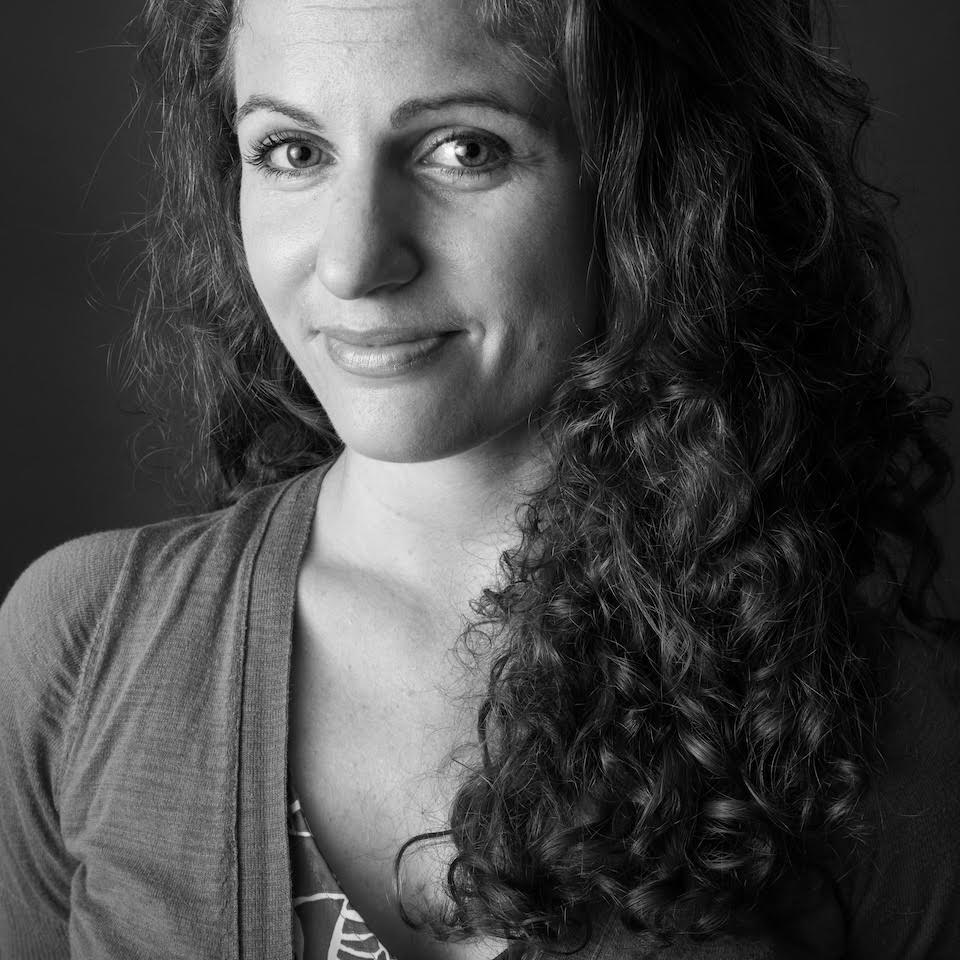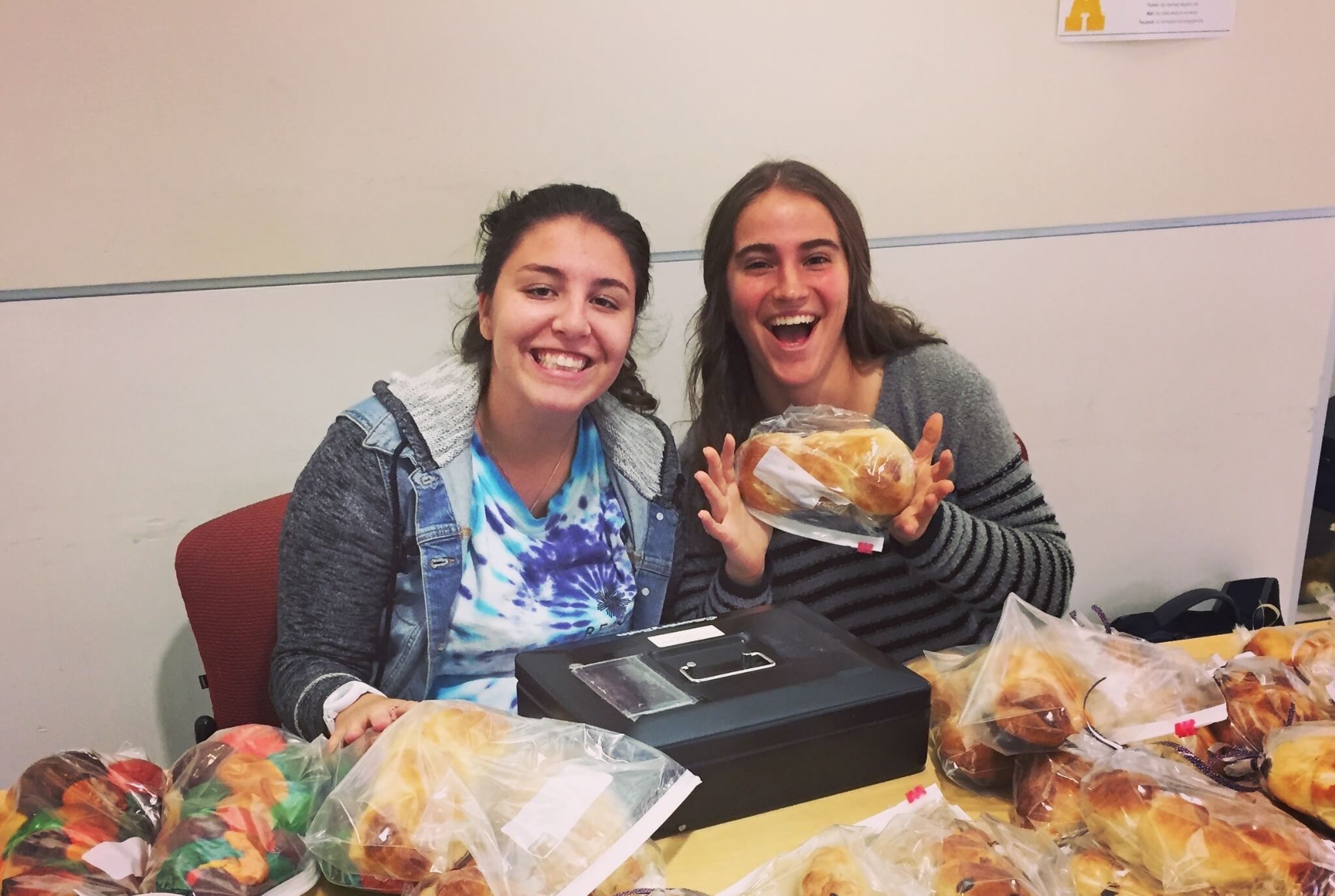What does taking steps towards serving better food at Hillel look like? Which changes are possible? Will students be on board? Will food be more expensive? The following is an interview with Dr. Adrienne Krone, Assistant Professor of Religious Studies and Director of Jewish Life at Allegheny College, who offers her experience providing values-based food choices at Allegheny’s Hillel in rural Pennsylvania.
What and where is Allegheny College, and what is student life like on campus?
Allegheny College is a private liberal arts college with about 2,000 students and 150 faculty located in Meadville, Pennsylvania. The college’s mascot is the “Allegheny Alligator,” so its sustainability efforts have employed the catchy title “Green Gators” to refer to staff and students making impact-conscious choices on campus. Jewish students make up about four percent of the student population and there is an active Hillel. We have a Shabbat gathering every week and our other events include holiday celebrations, educational programs, and social events. No matter what we’re doing for Shabbat, we always serve dinner! Jewish staff, faculty, and local Meadville residents often join us for our Shabbat programs. Together, we form a tight-knit intergenerational community.
What types of recent programs, events, or efforts showcased your commitment to animal welfare and sustainable food practices during 2017-2018?
In the fall of 2016, as part of the Hazon and JIFA higher welfare eggs initiative, Allegheny Hillel committed to serving only animal welfare certified, pasture-raised eggs. Prior to 2017, Allegheny Hillel’s informal food policy included serving mainly vegetarian dairy meals and we have continued to do so. Our Hillel is located far from the urban centers (where kosher meat is more readily available), so serving vegetarian meals allows us to accommodate students who adhere to a kosher or kosher-style diet. Also, because we make the challah every week, we make it vegan! We use the Challah for Hunger recipe, which we love. Most recently, we switched from using disposables for all events to reusable plates, glasses, napkins, and utensils. In the fall of 2017, our Hillel became a Hazon Seal of Sustainability Site and, as part of our participation in the Seal, we completed a food audit and created a food policy (below) for our Hillel.
Our working food policy, featured on our website:
At Allegheny Hillel, we want all of our meals to be inclusive and community centered. Because many members of our community adhere to kosher-style, vegetarian, and vegan diets, we mainly serve vegetarian meals with vegan options when possible. We decided as a community in fall 2016 to commit to higher welfare eggs as part of the Hazon and JIFA higher welfare eggs initiative and have served only high welfare eggs since then. Our campus dining services company, Parkhurst, is similarly committed to higher welfare eggs and sustainability, so we are happy to partner with them for catered events on campus.
How have students taken an interest in Hillel’s commitments?
Some Hillel students have been moved by courses they’ve taken or films they’ve seen about moving towards a plant-based diet and a few of them have joined me in leading our efforts at Hillel. In 2017-2018, our Shamayim V’Aretz Campus Fellow, Emily Steinberg, worked with Hillel to increase plant-based options at our events, and ran programs focused on Jewish veganism. Since we began offering more vegan options, we’ve noticed an increase in the number of non-Jewish students who come to Hillel to get a free vegan meal and we are happy to welcome them into our community.
Describe your experience working to implement a new program, policy, or practice. What have you, your staff, or your students learned about animals, factory farming, sustainability, food sourcing, or your process?
I teach courses on campus related to food justice (a first-year seminar on food justice and an upper level Religious Studies and Environmental Studies course called “Judaism, Justice, and Food”) so we have many students who have learned a great deal about animals, factory farming, sustainability, and food sourcing in my and other courses.
We recently hosted a community potluck dinner on Erev Rosh Hashanah that taught me a valuable lesson. A student’s parents joined us for the holiday and offered to bring brisket, matzo ball soup, and kishke to the potluck so I let the attendees know it would be a meat meal (which is not our usual!) We still offered plenty of vegan and vegetarian options and the students who eat meat were happy to have a kosher meat option. At the end of the event, one of the parents who brought the food pulled me aside and said she completely understands there are issues with the meat industry and that she is glad her daughter is taking my class “Judaism, Justice, and Food.” She mentioned that she got all of the meat they served from KOL foods, which is currently the only supplier of kosher higher welfare meat, including heritage chicken and 100% pastured beef. She even said that when she learned about KOL, she personally switched to their products and that is the meat her family always eats now. It was a Rosh Hashanah miracle!
What types of challenges did you face? What types of successes were gained?
Higher welfare animal products are relatively hard to acquire near our campus. For a few events when I had to buy eggs at the grocery stores in town, the highest welfare option is organic cage-free. Luckily, I usually have time to plan ahead and drive to Erie where we are able to purchase Vital Farms’ Certified Humane, Pasture-Raised eggs.1 Our Hanukkah party, which is our biggest event of the year, involves making hundreds of latkes. We make most with eggs, and a few batches of vegan latkes with no eggs.
One of our huge successes resulted from our partnership with Parkhurst, the on-campus food service company. We cater from Parkhurst for many of our events and I work with them to provide plant-based options at every meal. We often have a pasta bar, which initially came with pasta that contained egg, so I would order a small amount of vegan pasta for a vegan option. In Spring 2017, I received an email from the Director of Catering stating that they had decided to switch all of their catered pasta to egg-free pasta so that we wouldn’t have to order a special option for vegans anymore. Due to this change, the whole campus is eating fewer eggs than before and they likely haven’t even noticed a difference.
How did JIFA support your process?
We initially worked with JIFA to create a higher welfare egg policy, and then continued worked with JIFA to formalize our food policy. Between 2016 and 2018 I also received a grant from JIFA to conduct research on the Jewish Community Farming (JCF) movement. This grant allowed me to visit Jewish community farms and in the summers of 2017 and 2018 I was able to bring Allegheny students with me to visit JCF organizations.
What is something you’d like other communities or organizations like yours to know?
- It isn’t difficult or expensive to expand plant-based options! In fact, we likely save money because we so rarely serve meat.
- All of the vendors we work with are amenable to altering our food orders to ensure that we have plant-based options. When we order pizza, we order at least one without cheese. When we order Chinese food, we order our vegetable fried rice without egg. Parkhurst has also worked with us to expand their vegan options. If you’re willing to ask questions, people tend to be willing to accommodate your requests.
- Although I initiated these changes and had the active support of just a few students, the changes have been very well received by all who participate in our Hillel community. A few people really do make a difference!
- As a Jewish community, we understand the value of eating together and don’t want anyone to feel left out or unable to share a meal with us. Our food policy has allowed us to create a welcoming and inclusive space by offering vegetarian meals with vegan options because these are meals that everyone can eat together.
For more information on how JIFA can help your Hillel transition to more humane, sustainable, and inclusive food choices, email us at [email protected].




